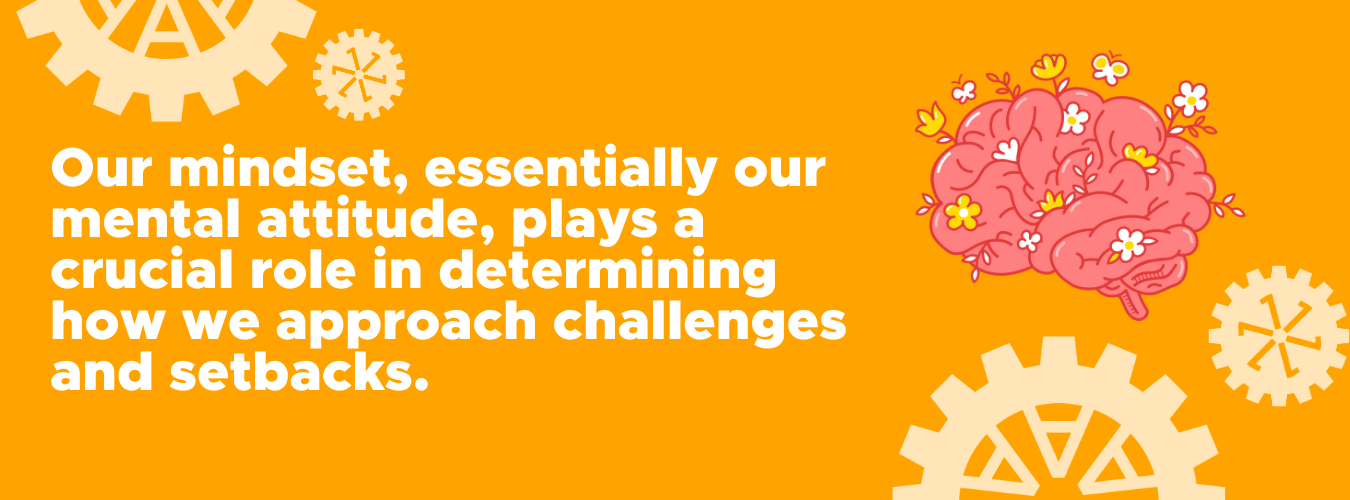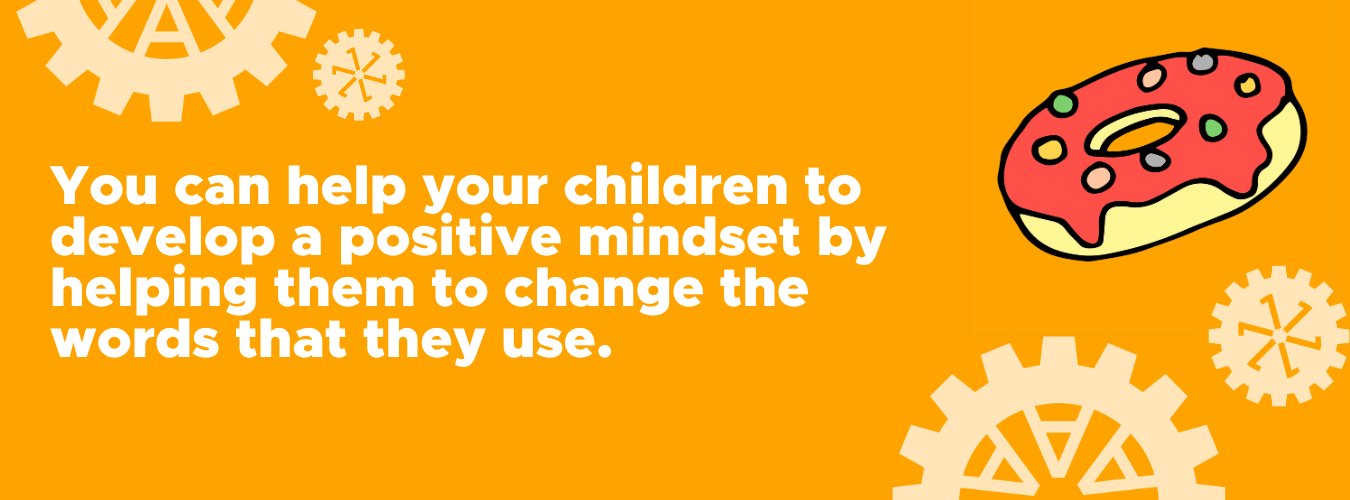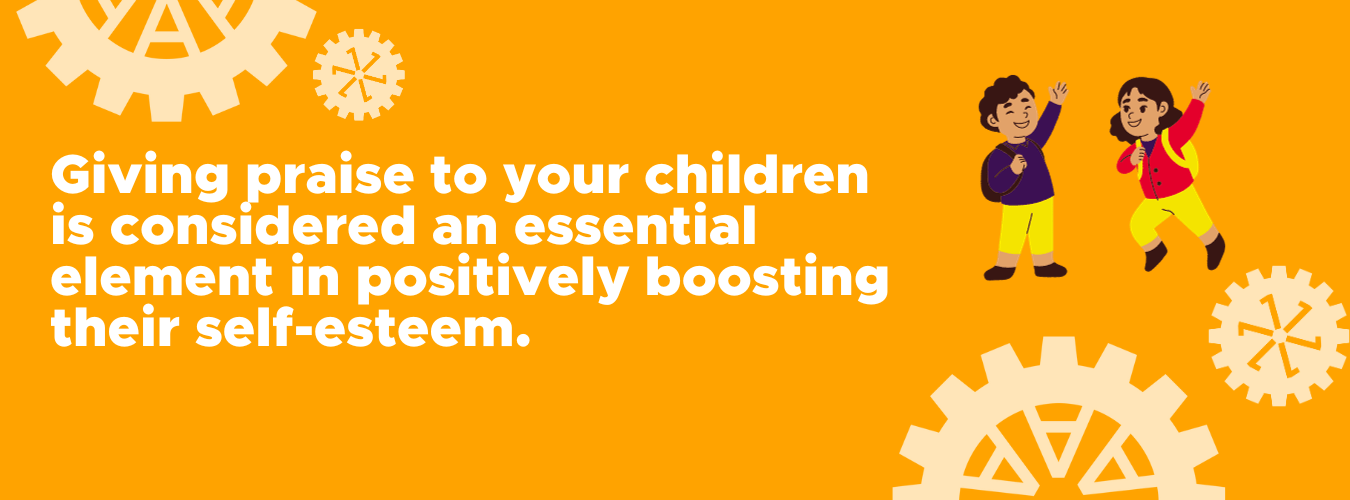Change your words, change your world

You may have heard this saying before: "Repeating the notion that someone is unintelligent can lead them to internalise it." The language we use, whether directed at others or within our minds, holds significant sway over our perspective.
Fundamentally, mindset moulds our view of the world and our place in it. A negative mindset paints the world in harsh tones, magnifying minor setbacks into major defeats and turning new experiences into daunting challenges.
Efforts seem fruitless, and optimism dwindles. On the contrary, a positive mindset perceives mistakes as opportunities for growth, welcomes the new with enthusiasm, trusts in the value of hard work, and sees the world as a vast and thrilling realm to explore.
Is your child struggling to keep up with schoolwork? Are they falling behind? Are they bored in class? Or are you looking for extension work for your child? Check out our eBook to learn more about how we help your child improve academically and build confidence through our in-centre after-school tuition.
Negative vs. Positive Mindset: A World of Difference
Notice the difference in language used to describe negativity compared to positivity. Shifting your mindset can be as straightforward as altering the words you use. Whether in your inner dialogue or when talking to your children, the words you select profoundly influence your outlook, fostering a positive worldview.
Essentially, our mindset, our mental perspective, greatly influences how we tackle challenges and setbacks. A negative mindset amplifies life's challenges, making minor setbacks seem insurmountable and new experiences appear daunting. In contrast, a positive mindset allows us to view mistakes as opportunities for growth, challenges as exciting prospects, and dedicated effort as a pathway to success.

The Influence of Popular Culture: The Simpsons and Language
The potency of language lies in its ability to transform a negative mindset into a positive one. By carefully choosing our words, whether in our internal thoughts or during conversations with others, we can nurture a happier and more optimistic outlook on life. It's crucial to recognise the significant impact of the language we commonly use.
Consider, for instance, the influence of popular culture, such as 'The Simpsons,' which introduced seemingly harmless phrases like 'duh.' Although these expressions may seem innocent, they contribute to a culture of belittlement and negative self-criticism. Such language, often masked as humour, can seep into our daily interactions, shaping how we perceive ourselves and those around us.
This type of language, when combined with humour, might appear harmless and acceptable. Combining this sort of language with enjoyable humour has made it ‘okay’. However, this sort of language creates a negative mindset.
You can assist your children in cultivating a positive mindset by guiding them to select their words wisely. Here are some effective ways to transform common negative phrases children might use: Instead of saying ‘This is too hard,’ encourage them to express ‘This may take some time and effort.’ Replace ‘I made a mistake’ with ‘Mistakes help me improve.’ These simple phrases can be taught to your children and encouraged for regular use.
Introduce the powerful word 'yet' into their vocabulary. When they say ‘I can’t do this,’ urge them to add ‘yet.’ This simple addition shifts their perspective from a negative, despairing outlook to a positive, future-oriented mindset. Words possess immense power, as our brains internalise what we hear. Aid your children, as well as yourself, in adopting positive language that nurtures a world where they feel content and, consequently, where they can thrive.

The Impact of Praise
Recognising and praising your children is widely acknowledged as a pivotal factor in boosting their self-esteem positively. However, it's crucial to understand that the choice of your words significantly shapes their mindset.
Commending intelligence with phrases like 'You're so smart' or 'You're good at this' might inadvertently set them up for failure, suggesting a lack of intelligence when they make a mistake, leading to a negative mindset of 'I'm no good at this' and 'Why bother?'
Instead, when you appreciate their effort by saying things like 'You've earned those good results through your hard work' and 'I'm proud of the way you persevered,' you reinforce language that nurtures a positive mindset.
At NumberWorks'nWords, praise plays a fundamental role in our student's success. We train our tutors to recognise these various forms of praise and use expressions that acknowledge and reward effort, contributing to a positive and encouraging learning environment.

The Role of Parents: Nurturing a Positive Mindset in Children
As parents, it is our responsibility to instil a positive mindset in our children. Teaching them to replace discouraging phrases like 'This is too hard' with empowering statements such as 'This may take some time and effort' can lead to a significant transformation.
Encouraging the use of the word 'yet' can transform a statement of despair like 'I can't do this' into an optimistic acknowledgment of potential growth. By valuing their efforts instead of categorising them as inherently 'smart' or 'talented,' we highlight the importance of determination and persistence.
At NumberWorks'nWords, we understand the significance of positive reinforcement. Our tutors are equipped with the skills to use language that acknowledges and celebrates effort, fostering a growth mindset among our students. By recognising the commitment and tenacity displayed by our learners, we help them recognise the value of their hard work, laying the groundwork for future accomplishments.
The influence of words on our thoughts, attitudes, and ultimately, our destinies is profound. By deliberately choosing our language and promoting positive self-expression and interactions, we have the power to shape a world where people, especially children, feel empowered, self-assured, and capable of overcoming any challenge.
Let's transform our language and consequently, transform our world for the better. Together, let's create a positive and supportive environment where everyone has the opportunity to thrive.




